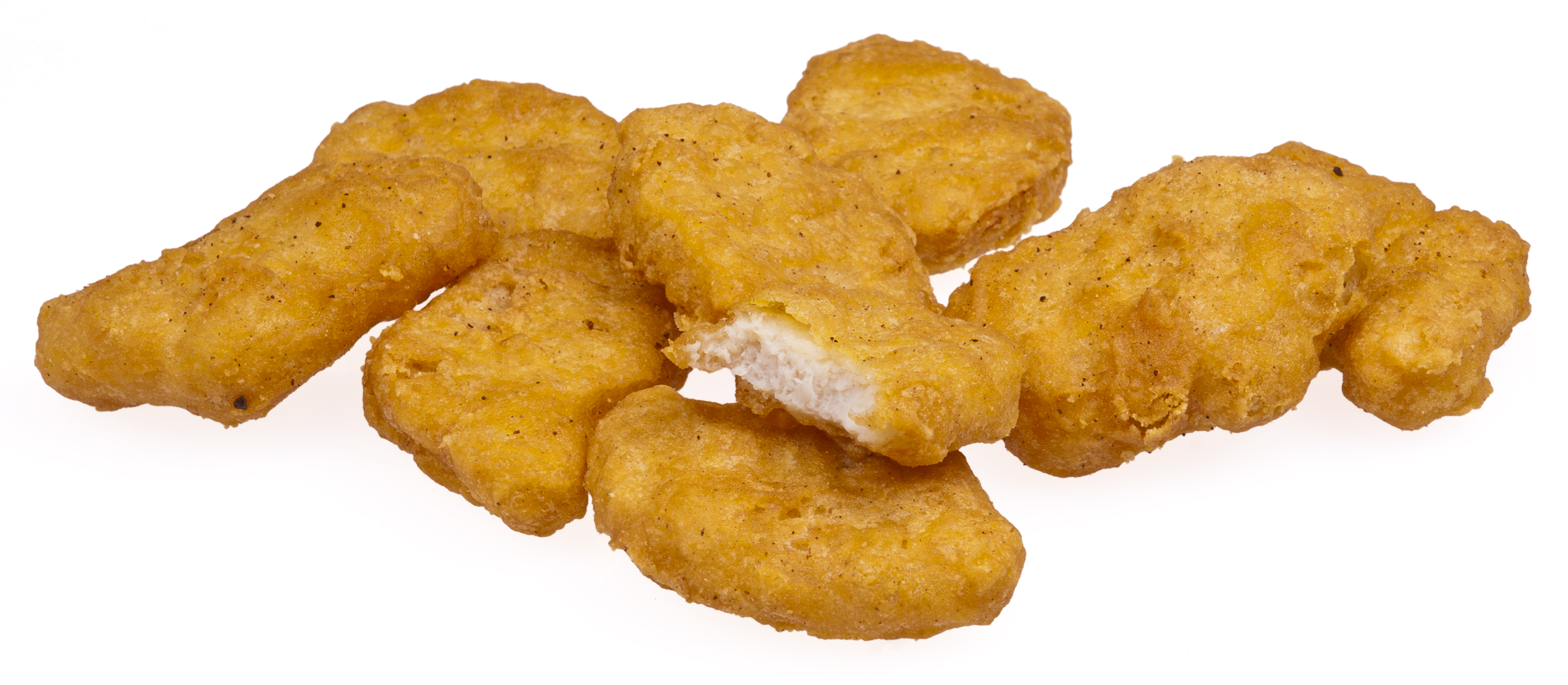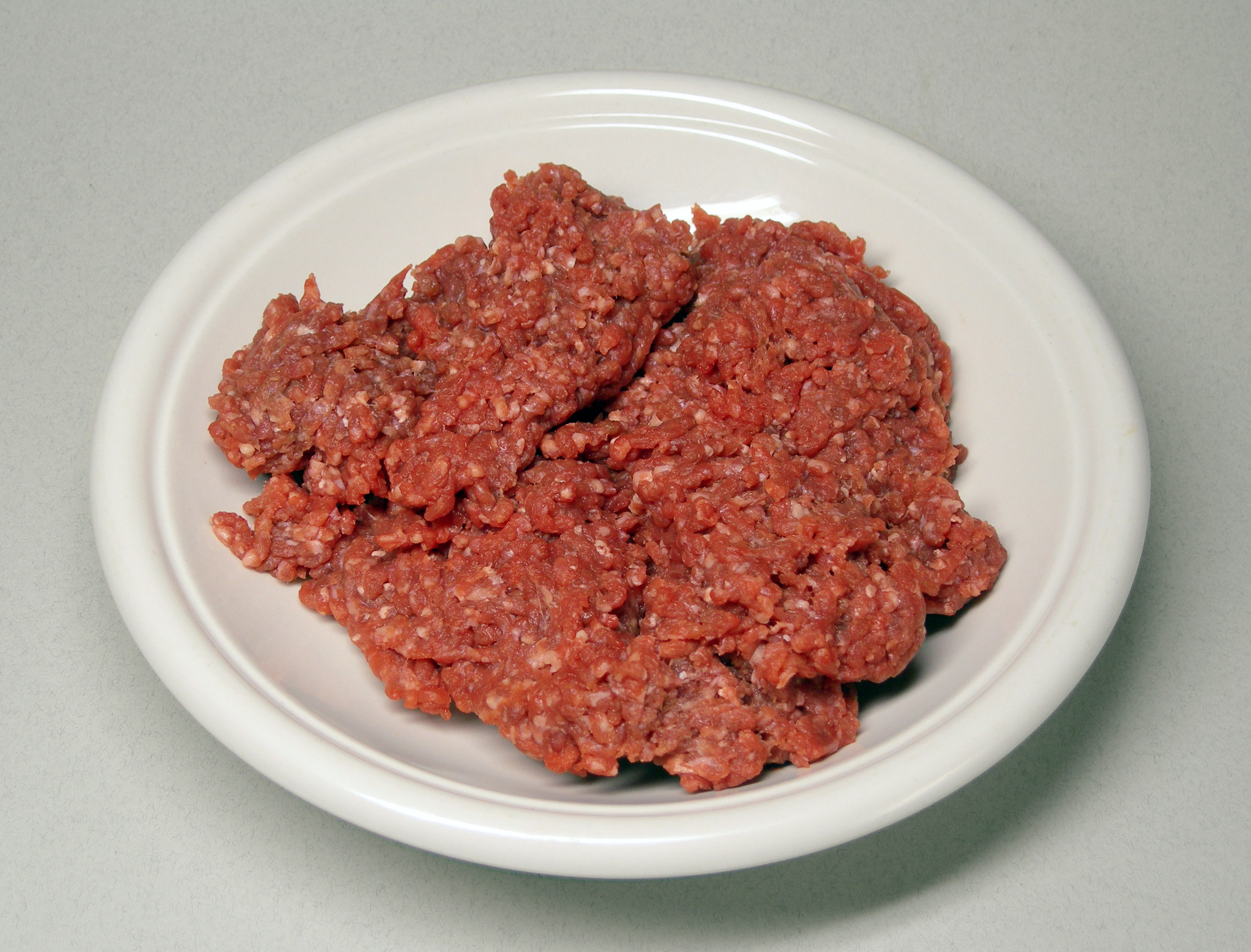|
Meat Analogue
A meat alternative or meat substitute (also called plant-based meat or fake meat, sometimes pejoratively) is a food product made from vegetarian or vegan ingredients, eaten as a replacement for meat. Meat alternatives typically approximate qualities of specific types of meat, such as mouthfeel, flavor, appearance, or chemical characteristics. Plant- and fungus-based substitutes are frequently made with soy (e.g. tofu, tempeh, and textured vegetable protein), but may also be made from wheat gluten as in seitan, pea protein as in the Beyond Burger, or mycoprotein as in Quorn. Meat alternatives are typically consumed as a source of dietary protein by vegetarians, vegans, and people following religious and cultural dietary laws. However, global demand for sustainable diets has also increased their popularity among non-vegetarians and flexitarians seeking to reduce the environmental impact of meat production. Meat substitution has a long history. Tofu was invented in Chin ... [...More Info...] [...Related Items...] OR: [Wikipedia] [Google] [Baidu] |
Tempe Burger , a traditional soy product, commonly known as ''tempe''
{{geodis ...
Tempe may refer to: Places * Vale of Tempe, Greece * Tempe, Arizona, United States * Tempe, New South Wales, a suburb in Sydney, Australia * Lake Tempe, Indonesia * Tempe, Bloemfontein, South Africa, an area outside Bloemfontein, home to various military bases and units See also * Tempa, West Virginia, which may be named for the Vale of Tempe (see above) * Tempeh Tempeh or tempe (; jv, ꦠꦺꦩ꧀ꦥꦺ, témpé, ) is a traditional Indonesian food made from fermented soybeans. It is made by a natural culturing and controlled fermentation process that binds soybeans into a cake form. A fungus, '' Rhiz ... [...More Info...] [...Related Items...] OR: [Wikipedia] [Google] [Baidu] |
Sustainable Diet
Sustainable diets are defined as "those diets with low environmental impacts that contribute to food and nutritional security and to healthy lives for present and future generations. Sustainable diets are protective and respectful of biodiversity and ecosystems, culturally acceptable, accessible, economically fair and affordable, are nutritionally adequate, safe, and healthy, and optimize natural and human resources." These diets attempt to address nutrient deficiencies (e.g., undernourishment) and excess (e.g., obesity), all of the while covering ecological phenomena such as climate change, loss of biodiversity and land degradation. Sustainable diets frequently seek to reduce the environmental impact of the whole contributing food system. These efforts can tackle anything from production practices and distribution to other economic or systems considerations (such as food waste). However, most sustainable diets include reducing consumption of meat, dairy and eggs, because of ... [...More Info...] [...Related Items...] OR: [Wikipedia] [Google] [Baidu] |
Impossible Burger - Gott's Roadside- 2018 - Stierch
Impossible, Imposible or Impossibles may refer to: Music * ''ImPossible'' (album), a 2016 album by Divinity Roxx * ''The Impossible'' (album) Groups * The Impossibles (American band), a 1990s indie-ska group from Austin, Texas * The Impossibles (Australian band), an Australian band * The Impossibles (Thai band), a 1970s Thai rock band Songs * "Impossible" (Captain Hollywood Project song) (1993) * "The Impossible" (song), a country music song by Joe Nichols (2002) * "Impossible" (Edyta song) (2003) * "Impossible" (Kanye West song) (2006) * "Impossible" (Daniel Merriweather song) (2009) * "Impossible" (Måns Zelmerlöw song) (2009) * "Impossible" (Anberlin song) (2010) * "Impossible" (Shontelle song) (2010) * "Impossible", from Rodgers and Hammerstein's 1957 musical ''Cinderella'' * "Impossible", a song written by Steve Allen and recorded by Nat King Cole for his 1958 album ''The Very Thought of You'' * "Impossible", from the 1994 album ''The Screaming Jets'' by The Sc ... [...More Info...] [...Related Items...] OR: [Wikipedia] [Google] [Baidu] |
Nut And Lentil Roast
Nut often refers to: * Nut (fruit), fruit composed of a hard shell and a seed, or a collective noun for dry and edible fruits or seeds * Nut (hardware), fastener used with a bolt Nut or Nuts may also refer to: Arts, entertainment, and media Comics * ''Nuts'', comic in the National Lampoon by Gahan Wilson (1970s) * ''Nuts'', comic strip in alternative newspapers by M. Wartella (1990s) Fictional characters * Nut (Marvel Comics), fictional character evoking the Egyptian sky goddess * Nut (movie character), character portrayed by Shing Fui-On in two late 20th-century Hong Kong crime films Films * ''Nuts'' (1987 film), American drama * ''Nuts'' (2012 film), French comedy * ''Nuts!'' (film), animated documentary on John R. Brinkley Television * John Acorn, the "nature nut" in series ''Acorn, The Nature Nut'' *NBC Universal Television Studio, or NUTS, former name of television arm of NBCUniversal / Universal Television * Nuts TV, British television channel related to ''Nuts'' ... [...More Info...] [...Related Items...] OR: [Wikipedia] [Google] [Baidu] |
Chicken Nugget
A chicken nugget is a food product consisting of a small piece of deboned chicken meat that is breaded or battered, then deep-fried or baked. Invented in the 1950s, chicken nuggets have become a very popular fast food restaurant item, as well as widely sold frozen for home use. History The chicken nugget was invented in the 1950s by Robert C. Baker, a food science professor at Cornell University, and published as unpatented academic work. This bite-sized piece of chicken, coated in batter and then deep fried, was called the "Chicken Crispie" by Baker and his associates. Two problems the meat industry was facing at the time were being able to clump ground meat without a skin and producing a batter coating that could be both deep fried and frozen without becoming detached. Baker's innovations solved these problems and made it possible to form chicken nuggets in any shape by first coating the meat in vinegar, salt, grains, and milk powder to make it hold together and then ... [...More Info...] [...Related Items...] OR: [Wikipedia] [Google] [Baidu] |
Patties
A patty or burger (in British English) is a flattened, usually round, serving of ground meat and/or legumes, grains, vegetables, or meat alternatives. Patties are found in multiple cuisines throughout the world. In British and American English, minced meat that is formed into a disc is called a burger, whether it is in a bread roll or not. The word “patty” is also used in American English but almost unknown in British English. The ingredients are compacted and shaped, usually cooked, and served in various ways. Some foods termed "patties" use ingredients inside a pastry crust that is then baked or fried. Some patties are breaded, then baked or fried. In London, since the late 1980s, the Jamaican patty, similar to the Cornish pastie, is a common food item. Etymology The term originated in the 17th century as an English alteration of the French word pâté. According to the OED, it is related to the word pasty, which is various ingredients encased in pastry. Termin ... [...More Info...] [...Related Items...] OR: [Wikipedia] [Google] [Baidu] |
Ground Beef
Ground beef, minced beef or beef mince is beef that has been finely chopped with a knife, meat grinder (American English), mincer or mincing machine (British English). It is used in many recipes including hamburgers, bolognese sauce, meatloaf, meatballs and kofta. It is not the same as mincemeat, which is a mixture of chopped dried fruit, distilled spirits, spices and historically (but nowadays rare) minced/ground meat. Contents In many countries, food laws define specific categories of ground beef and what they can contain. For example, in the United States, beef fat may be added to hamburger but not to ground beef if the meat is ground and packaged at a USDA-inspected plant.These rules only apply to meat being sold across state lines. In the U.S., much ground beef is produced at local grocery stores and is not sold across state lines. In these cases, the laws of the local state apply; state laws may have different requirements. In the U.S., a maximum of 30% fat by weight ... [...More Info...] [...Related Items...] OR: [Wikipedia] [Google] [Baidu] |
Beyond Meat
Beyond Meat, Inc. is a Los Angeles–based producer of plant-based meat substitutes founded in 2009 by Ethan Brown. The company's initial products were launched in the United States in 2012. History Founding Ethan Brown founded the company in 2009 with the stated mission of combating climate change. Brown initially contacted two University of Missouri professors, Fu-hung Hsieh and Harold Huff, who had been developing their meatless protein for years. Upon licensing Hsieh and Huff's technology, Beyond Meat launched its first product, Beyond Chicken Strips (originally called "Chicken-Free Strips"), in Whole Foods location in 2012 and expanded nationally in 2013. In 2014, Beyond Meat developed its first plant-based beef product, Beyond Beef Crumbles, and has since expanded into plant-based pork. The People for the Ethical Treatment of Animals named Beyond Meat as its Company of the Year for 2013. IPO and finance Over the years 2013 to 2016, the company received venture funding fro ... [...More Info...] [...Related Items...] OR: [Wikipedia] [Google] [Baidu] |
Impossible Foods
Impossible Foods Inc. is a company that develops plant-based substitutes for meat products. The company's signature product, the Impossible Burger, was launched in July 2016. In partnership with Burger King, Impossible Whoppers were released across the United States by summer 2019. The company also makes plant-based sausage and chicken products. Company and product history Impossible Foods was founded by Patrick O. Brown in 2011. In July 2016, the company launched its first meat analogue product, the Impossible Burger, which is made from material derived from plants. The company says that making it uses 95% less land and 74% less water, and it emits about 87% less greenhouse gas than making a ground beef burger patty from cows. The plant-based burger has more protein, less total fat, no cholesterol, and less food energy than a similar-sized hamburger patty made with beef. It contains more sodium and more saturated fats than an unseasoned beef patty. The Impossible Burg ... [...More Info...] [...Related Items...] OR: [Wikipedia] [Google] [Baidu] |
Lent
Lent ( la, Quadragesima, 'Fortieth') is a solemn religious observance in the liturgical calendar commemorating the 40 days Jesus spent fasting in the desert and enduring temptation by Satan, according to the Gospels of Matthew, Mark and Luke, before beginning his public ministry. Lent is observed in the Anglican, Eastern Orthodox, Lutheran, Methodist, Moravian, Oriental Orthodox, Persian, United Protestant and Roman Catholic traditions. Some Anabaptist, Baptist, Reformed (including certain Continental Reformed, Presbyterian and Congregationalist churches), and nondenominational Christian churches also observe Lent, although many churches in these traditions do not. Which days are enumerated as being part of Lent differs between denominations (see below), although in all of them Lent is described as lasting for a total duration of 40 days. In Lent-observing Western Churches, Lent begins on Ash Wednesday and ends approximately six weeks later; depending on the Christian ... [...More Info...] [...Related Items...] OR: [Wikipedia] [Google] [Baidu] |
Mincemeat
Mincemeat is a mixture of chopped dried fruit, distilled spirits and spices, and often beef suet, usually used as a pie or pastry filling. Mincemeat formerly contained meat, notably beef or venison. Many modern recipes replace the suet with vegetable shortening. Mincemeat is found in the Anglosphere. Etymology The "mince" in mincemeat comes from the Middle English ''mincen,'' and the Old French ''mincier'' both traceable to the Vulgar Latin ''minutiare'', meaning ''chop finely''. The word mincemeat is an adaptation of an earlier term ''minced meat,'' meaning finely chopped meat. Meat was also a term for food in general, not only animal flesh. Variants and history English recipes from the 15th, 16th, and 17th centuries describe a fermented mixture of meat and fruit used as a pie filling. These early recipes included vinegars and wines, but by the 18th century, distilled spirits, frequently brandy, were being used instead. The use of spices like clove, nutmeg, mace and ... [...More Info...] [...Related Items...] OR: [Wikipedia] [Google] [Baidu] |







